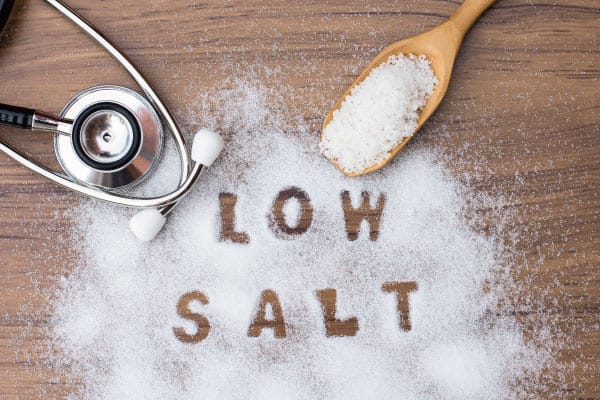Salt may be the most common ingredient in Nigerian kitchens, but doctors and public health experts have warned it is also quietly fueling a health crisis.
From high blood pressure to strokes, heart disease and kidney failure, excessive salt consumption is steadily raising Nigeria’s burden of non-communicable diseases (NCDs)—a danger that experts say is entirely preventable.
At a recent webinar organised by the Corporate Accountability and Public Participation Africa (CAPPA), nutrition and health experts urged Nigerians to rethink their love affair with salt and adopt healthier habits at home, in markets, and across the food industry.
“Salt reduction is one of the most cost-effective public health interventions,” said Bukola Olukemi-Odele, CAPPA Programme Manager. “Its benefits include longer life expectancy, reduced healthcare costs, and fewer deaths linked to hypertension and stroke.”
The World Health Organisation (WHO) recommends less than 5 grams of salt per day—about one teaspoon. But surveys suggest Nigerians consume nearly double that amount, mostly from processed foods, bouillon cubes, instant noodles, and snacks.
“These are the biggest offenders,” Olukemi-Odele explained. “Just 100 grams of seasoning cubes in Nigeria can contain up to 27,000 milligrams of sodium—levels far higher than in Europe or America.”
That figure is alarming when paired with Nigeria’s soaring cases of hypertension. Studies show that more than one in three adults live with high blood pressure, yet many are unaware of it until complications set in.
Stroke, kidney failure, and heart disease are among the top killers in Nigerian hospitals, all linked to high salt diets.
The good news, experts say, is that cutting down on salt doesn’t mean sacrificing taste.
“We have been trained to believe food cannot be tasty without bouillon cubes, but that is a myth,” Olukemi-Odele stressed. “We can untrain our taste buds.”
Doctors recommend the following steps for households: Cook with less salt—start by halving what you normally add, and gradually reduce further.
Avoid double seasoning—don’t add salt to meals already containing cubes or processed seasoning.
Explore natural spices—garlic, ginger, turmeric, curry leaves, onions, and peppers give meals a rich taste without harming health.
Eat more fruits and vegetables—these are rich in potassium, which helps balance sodium in the body.
Choose fresh foods over processed ones—many packaged foods are loaded with hidden sodium.
Dr. Ekiyor Joseph, another speaker at the webinar, summed it up simply: “The take-home message is minimalism. Take less salt than you used to. Your taste buds will adjust over time.”
On the Role of Salt Producers and Food Companies, public health advocates stress that responsibility cannot rest on families alone. Salt producers and food companies have a major role to play in reforming Nigeria’s food environment.
“Clear labelling is critical,” said Olukemi-Odele. “Labels should be simple, legible at a glance, and easy to understand—even for people with little literacy.”
Globally, countries like the United Kingdom, France, and Germany already use front-of-pack traffic-light labels and Nutri-Score systems to warn consumers about foods high in salt, sugar, or fat. In Nigeria, CAPPA and partners are pushing for similar measures.
The Federal Government took a step forward in November 2024 with the launch of the National Guideline for Sodium Reduction, while the National Agency for Food and Drug Administration and Control (NAFDAC) recently held consultations on draft salt-reduction regulations. These policies are designed not only to regulate food companies but also to educate street food vendors and households.
The challenge ahead, experts say, is enforcement and public buy-in. Nigerians are used to salty foods, and powerful marketing by food industries has normalised excessive salt in cooking.
“The industry has sold us the lie that only bouillon makes food tasty,” Olukemi-Odele remarked. “But if you watch international chefs, they prepare delicious meals with natural marinades, not cubes.”
However, advocates are calling for a multi-sectoral approach, including governments enforcing strong salt-reduction policies; industries reformulating products with less sodium; civil society driving awareness campaigns; and families shifting habits at the dining table.
Experts affirmed that the way forward is to include less salt in the daily diet.
They noted that the burden of NCDs is already draining Nigeria’s fragile health system. Hospital wards are filled with patients battling strokes, heart disease, and kidney failure—conditions that could have been delayed or prevented by something as simple as reducing salt.
For journalist and webinar moderator Robert Egbe, the solution is clear: “We need grassroots education. Every family, every food vendor, every community must hear the message that too much salt kills.”
Experts agree that it is not about eliminating salt altogether but about reducing it to safe levels. As Dr. Ekiyor Joseph put it: “Healthy eating is about knowledge. If we understand where sodium hides—in processed foods, cubes, snacks—we can make better choices.”
Ultimately, the fight for healthier diets is not just about personal responsibility. It is a national priority that could save millions of lives and billions of naira in healthcare costs.
“Salt makes food sweet,” Olukemi-Odele said with a smile, “but too much salt can make life bitter. Nigerians deserve better.”















